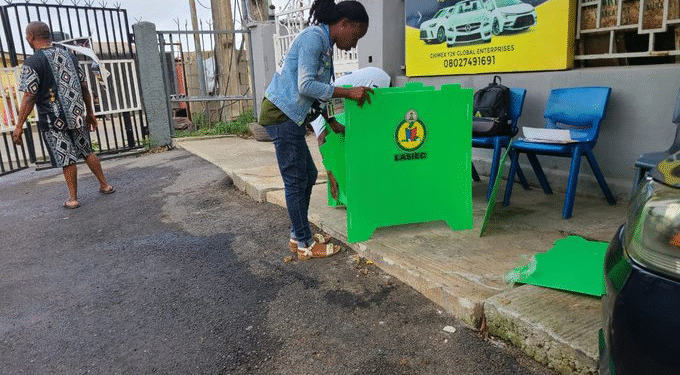Exactly one year after a landmark Supreme Court ruling affirming local government autonomy in Nigeria, over 7 million registered voters in Lagos State will head to the polls today, Saturday, July 12, 2025, to elect chairmen, vice-chairmen, and councillors across the state’s 20 Local Government Areas (LGAs) and 37 Local Council Development Areas (LCDAs).

Lagos, Nigeria’s commercial capital and home to more than 20 million people, is widely viewed as a political bellwether. It is also the home state of President Bola Tinubu, whose influence looms large over local politics.

The Lagos State Independent Electoral Commission (LASIEC) will oversee the elections. Unlike the Independent National Electoral Commission (INEC), which manages national and state-level elections, LASIEC is responsible for conducting local government polls. Fifteen out of Nigeria’s 19 registered political parties have candidates contesting various positions.

LASIEC Chairperson, Justice Bola Okikiolu-Ighile, confirmed that the Bimodal Voter Accreditation System (BVAS) will not be used in the polls. Instead, a combination of manual processes and unspecified electronic tools will be deployed. She assured voters of the commission’s readiness and urged Lagosians to come out and vote peacefully.
The ruling All Progressives Congress (APC), which won all chairmanship seats and nearly all councillorship slots in the 2021 LG elections, seeks to maintain its dominance. However, opposition parties—including the Peoples Democratic Party (PDP), Labour Party (LP), and African Democratic Congress (ADC)—have vowed to mount a challenge.

Among notable candidates is Abdulganiyu Obasa, son of Lagos Assembly Speaker Mudashiru Obasa, who is contesting the vice-chairmanship of Agege LGA.
According to LASIEC, voting will take place across 13,325 polling units in 376 wards. Voters with Permanent Voter Cards (PVCs) will cast ballots in LGAs including Alimosho, Surulere, Ikeja, and Ikorodu, as well as LCDAs like Bariga, Ojodu, Ojokoro, and Lekki.
To ensure safety, Lagos Commissioner of Police Olohundare Jimoh announced the deployment of 30,000 officers—including marine police, Rapid Response Squad, and special tactical units. Movement restrictions on roads and waterways will be in place from 6 a.m. to 3 p.m.

“No polling unit will be left unmanned,” said Jimoh. “Unarmed officers will be present at polling stations, while armed response teams will be stationed nearby.”
Civil society group Enough Is Enough Nigeria (EiE) raised doubts about LASIEC’s autonomy, alleging poor publicity, delayed candidate list release, and a lack of stakeholder consultation. The Inter-Party Advisory Council (IPAC) also criticised the unilateral release of election guidelines.
Governor Babajide Sanwo-Olu, a member of the APC, assured citizens of credible polls and urged high voter turnout. “This election is your voice and civic responsibility. The local government is closest to the people. Let’s get involved,” he said in a statement.
The governor encouraged youths to shun violence and contribute to a peaceful electoral process, promising strategic security deployments across polling units.
With high stakes and close scrutiny, Saturday’s polls will test both Lagos’ democratic resilience and the strength of grassroots governance in Nigeria’s most populous state.









